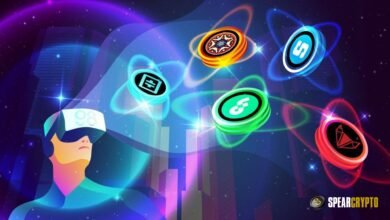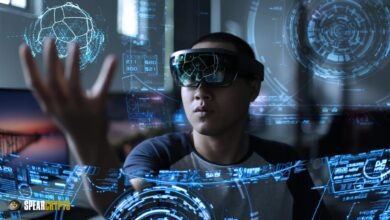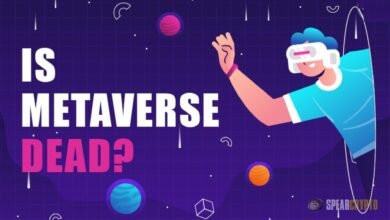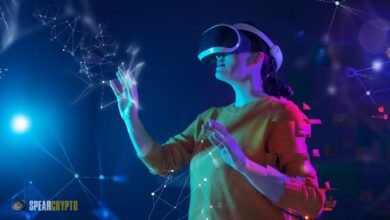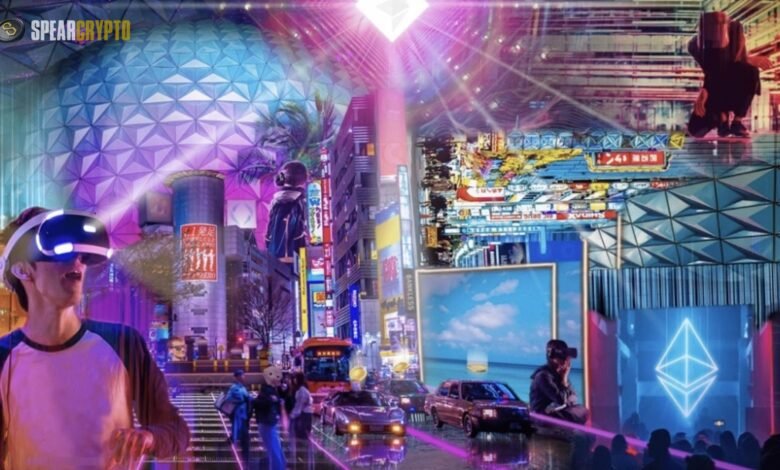
Metaverse Entertainment: The idea of the Metaverse, a shared virtual place that combines the actual and virtual worlds, has become popular in recent years. Technological developments, especially in the fields of blockchain, augmented reality (AR), and virtual reality (VR), have taken the concept of an immersive digital environment out of the realm of science fiction. The entertainment industry is one of the many industries that stand to benefit significantly from the metaverse’s impending transformation. This article looks at where metaverse entertainment is, where it could go, and what obstacles it may face in the future.
The Evolution of Entertainment in the Metaverse
The entertainment industry has never looked back in terms of pioneering new technologies. With the advent of each new medium—from silent film to the current dominance of video games—the possibilities for audiences to engage with narratives, artwork, and popular culture have grown. The metaverse is the next logical step in this development since it provides an experience unlike any other in terms of immersion and interaction.
Rather than merely consuming it, entertainment in the metaverse is an immersive experience. The metaverse opens up hitherto unthinkable avenues of content engagement, whether it’s through virtual concerts, digital art galleries, or interactive games. Several manifestations of this change are already visible:
Virtual Concerts and Events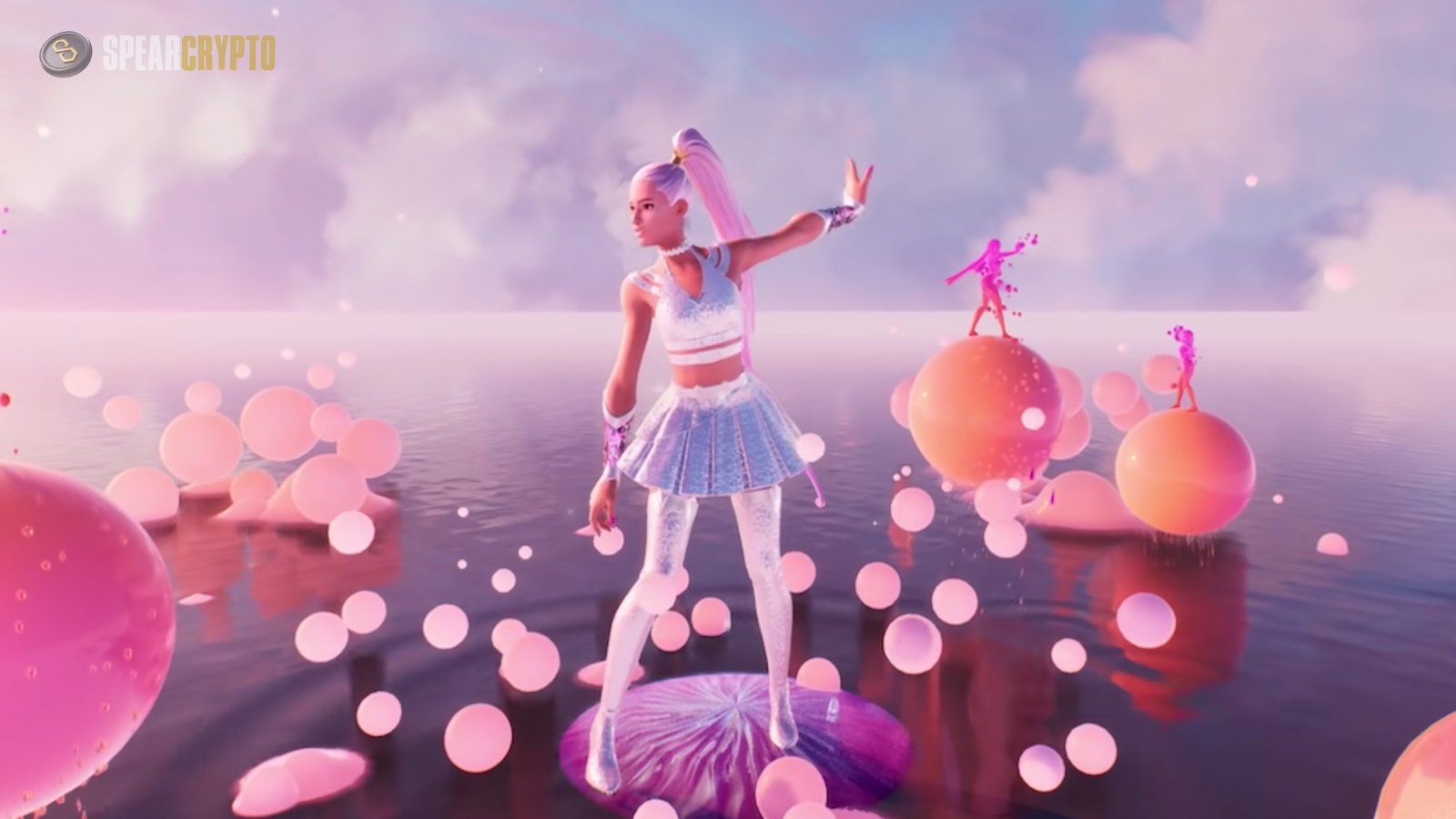
The COVID-19 pandemic hastened the acceptance of such events, with games like Roblox and Fortnite attracting millions of users to virtual performances. By allowing attendees to engage with both the setting and one another in real-time, these events showcased the metaverse’s promise as a stage for live entertainment, where physical distance is of no consequence.
Immersive Gaming
The metaverse has long been home to gaming platforms, such as Sandbox and Decentraland, which provide gamers with vast virtual environments to construct, explore, and interact with one another. The border between gaming and other types of digital engagement is becoming increasingly blurry as these games become more than just places to play; they are also communities where players may connect, make, and trade virtual items.
Digital Art and NFTs
The emergence of non-fungible tokens (NFTs) has given artists new opportunities to sell their work in the metaverse through digital art. Digital art is now being showcased in virtual galleries and museums, where users may buy, trade, and show off their collections in immersive surroundings. This has revolutionized art by creating new opportunities for collectors and artists.
Interactive Storytelling
Storytelling in the metaverse is more participatory and engaging than in the real world. Instead of just sitting back and watching a movie, users may actively participate by exploring the universe at their speed and making choices that impact the storyline. Even though it’s in its infancy, this kind of entertainment could revolutionize how stories are told.
The Role of Technology in Metaverse Entertainment
The metaverse relies on state-of-the-art technology, which will impact the entertainment industry in the future. The following are examples of essential technologies that are propelling this change:
Virtual Reality (VR) and Augmented Reality (AR)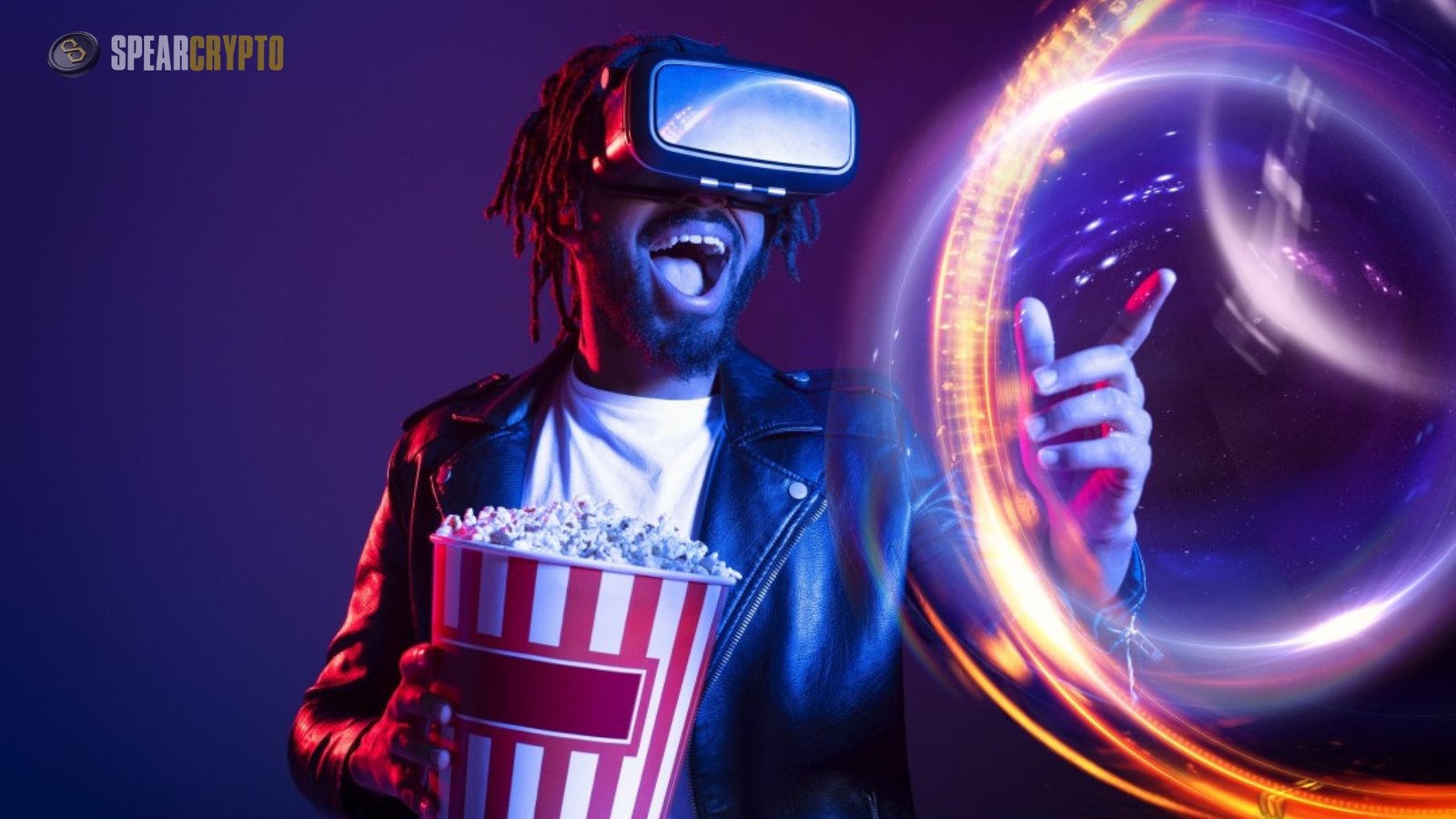
The immersive experiences that characterize the metaverse are mostly the product of virtual reality (VR) and augmented reality (AR). Virtual reality (VR) immerses viewers in a computer-generated world, whereas augmented reality (AR) superimposes digital content into the real world. Virtual theme parks and augmented reality games that combine the real and virtual worlds are only two examples of the new kinds of entertainment made possible by these technological advancements.
Blockchain and Cryptocurrencies
Creating a decentralized metaverse where users control digital goods is impossible without blockchain technology and cryptocurrencies. With the help of cryptocurrencies and NFTs, people can purchase, sell, and trade digital art, virtual land, and other virtual things. As a result, virtual economies have emerged in the metaverse, allowing individuals to make real money doing things they already love.
Artificial Intelligence (AI)
Artificial intelligence (AI) dramatically enhances metaverse realism and interactivity. AI-powered NPCs (non-playable characters) can have more nuanced and realistic user interactions, creating more exciting and immersive experiences. The metaverse also uses AI to handle the enormous volumes of data it generates, tailor user experiences, and create new content.
5G and Cloud Computing
The metaverse can’t work without 5G and cloud computing, which provide the massive processing power and lightning-fast connections it needs. Cloud computing allows for the scalable infrastructure required to handle millions of users simultaneously, while 5G networks offer the low latency and high bandwidth essential for real-time interactions. Providing smooth and engaging experiences in the metaverse relies heavily on these technologies.
The Future of Entertainment in the Metaverse
With the metaverse’s ongoing development, the entertainment possibilities are practically endless. The following are some trends that may emerge in the future and influence the direction of metaverse entertainment:
Hyper-Personalized Experiences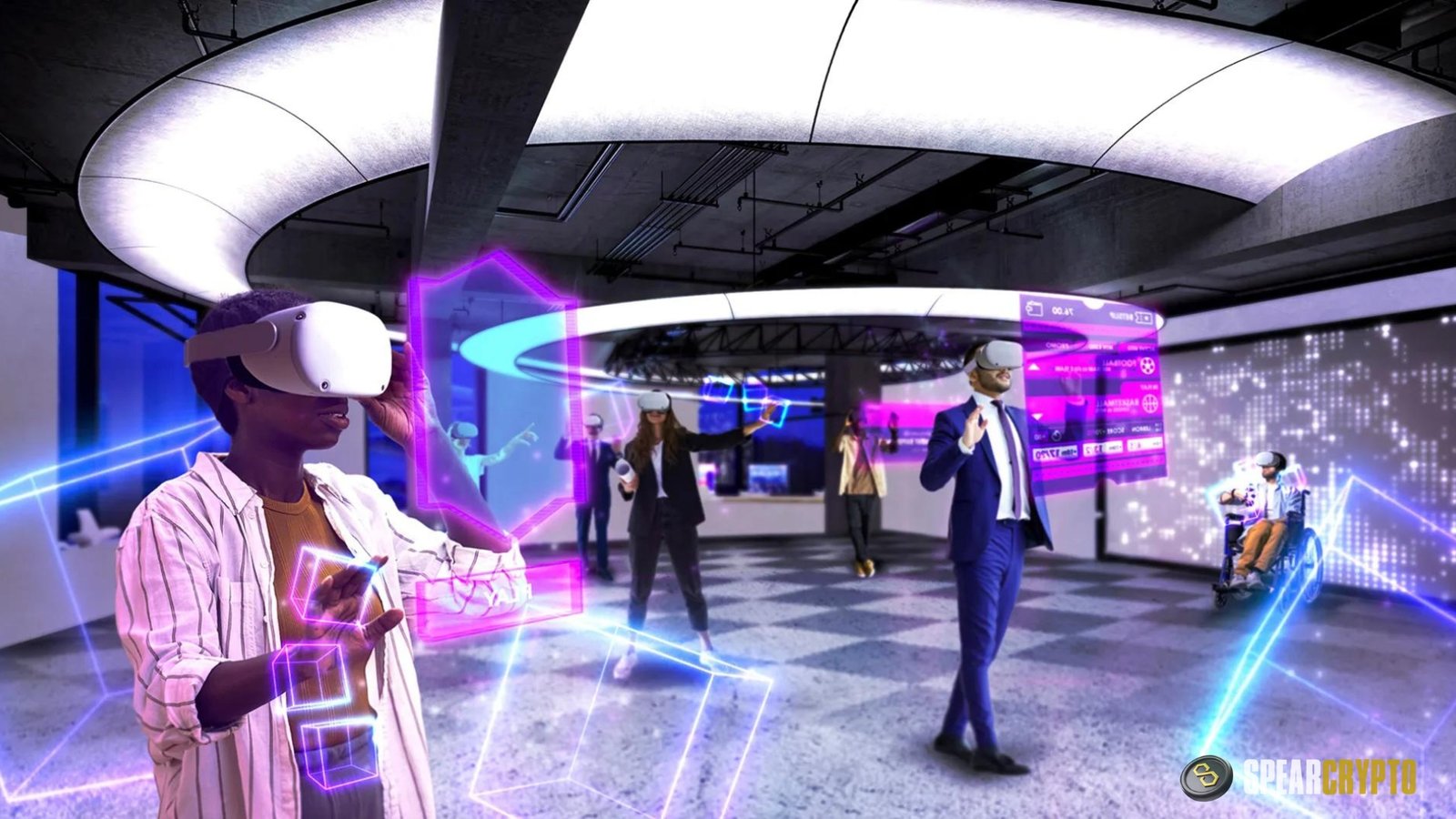
Entertainment in the metaverse has the potential to become hyper-personalized with the help of artificial intelligence and data analytics. Envision a virtual concert where the songs played are selected according to your taste in music or a game where the difficulty level determines the difficulty level. Almost every facet of the metaverse may be customized, from the layout of virtual rooms to how users engage with one another.
Cross-Platform Experiences
The future of the metaverse is bright, with an increasingly linked metaverse making frictionless cross-platform experiences possible. This means your digital life can become more connected and unified as your digital identity, assets, and experiences can follow you across different virtual realms.
Social and Collaborative Experiences
Metaverse Social and Collaborative Experiences: The metaverse could significantly improve social interactions compared to the real world. For example, in a virtual event, participants could work together in real time to compose music, write stories, or create artwork. As online learning and collaboration become the norm, social interactions may also spread to the workplace and classroom.
New Forms of Storytelling
Tales that Merge Video Games, Film, and Literature: Tales that merge video games, film, and literature could emerge in the metaverse. Just picture a story that goes on for a few days or weeks, and the users have a hand shaping it. These stories have the potential to be very dynamic and engaging, providing an engagement level that is unmatched by traditional media.
Virtual Tourism and Exploration
New possibilities for virtual tourism and exploration may arise in the metaverse as virtual settings improve in detail and realism. From the convenience of their own homes, users may access virtual versions of famous landmarks, fanciful environments, and even distant planets. As a result, travel could be rethought, and new avenues for learning and enjoyment could be unlocked.
Challenges and Considerations
There are a lot of things to think about and overcome before metaverse entertainment can reach its full potential:
Digital Divide
The digital divide is a disparity in access to high-speed internet, powerful computers, and virtual reality headsets. It has the potential to widen the income gap, making full participation in the metaverse accessible only to the well-off. For the metaverse to realize its full potential, it is crucial to guarantee that these technologies are accessible to everybody.
Privacy and Security
The metaverse is expected to produce massive volumes of data concerning privacy and security, including individual identities, online activities, and digital possessions. Ensuring user privacy and safeguarding this data from cyber-attacks are paramount. Although blockchain technology provides some answers, many data security and user control problems remain unsolved.
Content Moderation and Ethics
The importance of content regulation and ethical standards will grow with the metaverse’s increasing role in our daily lives. Harmful content generation, harassment, and hate speech are all issues that require appropriate management. Because of this, we need answers on the metaverse’s governance, namely, who will be in charge of creating and implementing regulations.
Environmental Impact
Data centres and blockchain networks, essential to the metaverse, significantly influence the environment. Energy usage will increase in tandem with the metaverse’s expansion. Implementing sustainable practices and energy-efficient technologies is critical to finding solutions to reduce this impact.
Legal and Regulatory Issues
The metaverse’s legal and regulatory structures are still mostly unexplored. Digital identity, ownership of virtual assets, and intellectual property rights must all be resolved. Policymakers and tech businesses must collaborate to ensure user safety and technological advancement.
Conclusion
Although it is still in its early stages, metaverse entertainment is quickly becoming a new standard for online activities. Innovations in artificial intelligence (AI), blockchain, and other technologies are reshaping the entertainment industry by bringing together the virtual and physical worlds. The expansion of the metaverse will bring about hitherto unfathomable possibilities for human connection, creativity, and perception of the universe.
Nevertheless, several obstacles must be overcome before the metaverse can reach its full potential. These include, but are not limited to, regulating content, reducing environmental effects, and assuring fair access. Careful management is necessary to guarantee that the metaverse’s entertainment industry grows inclusive, ethical, and sustainable, but the future is bright.
Moving ahead, the metaverse will alter our leisure activities, jobs, education, and interactions with the physical world. It can potentially revolutionize our perception of reality and mark the beginning of a new era in digital experiences. Our current decisions will determine whether it turns into a dystopian society of isolation and surveillance or a utopia of creativity and connection. We don’t know where this metaverse adventure will lead, but it is only starting.





